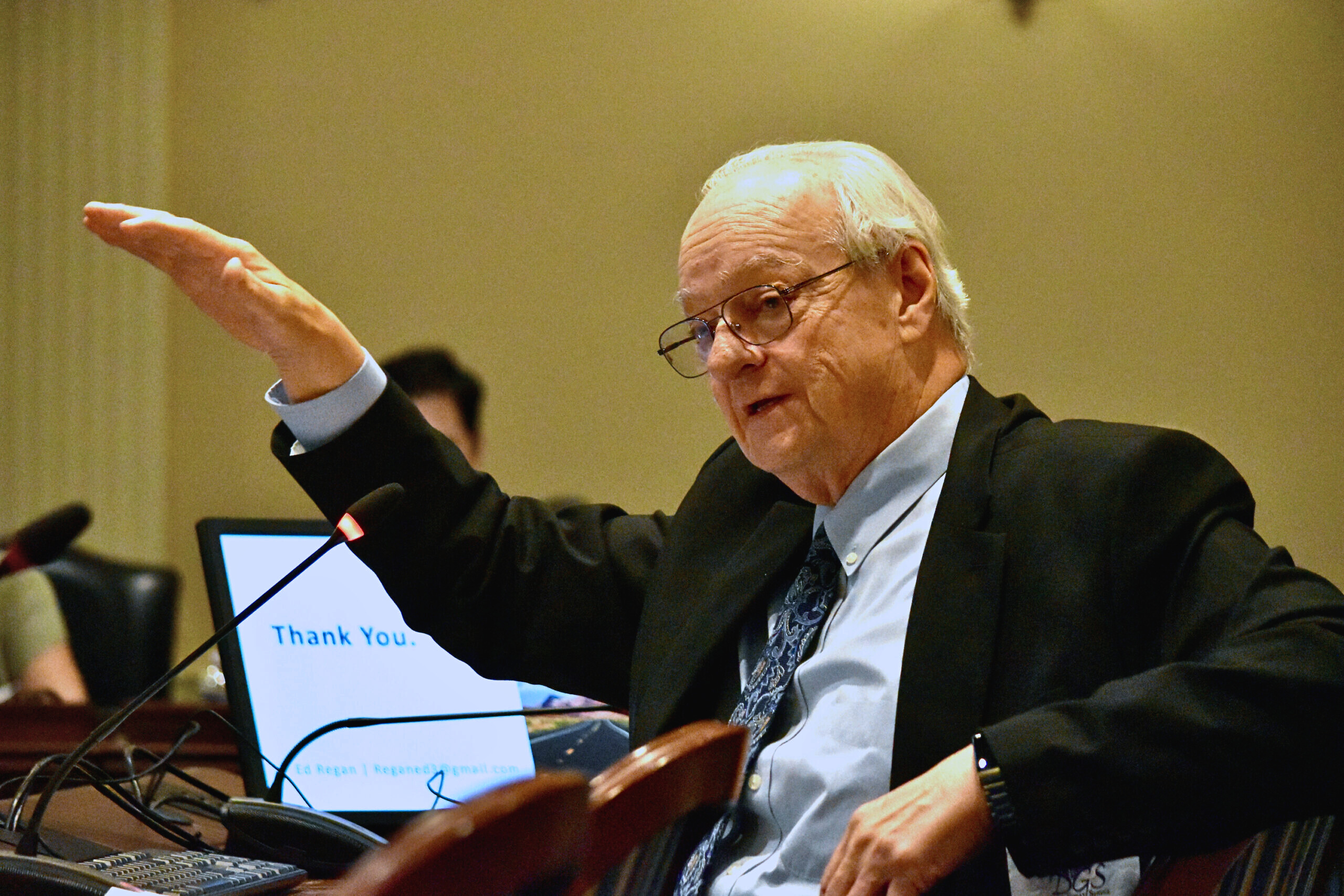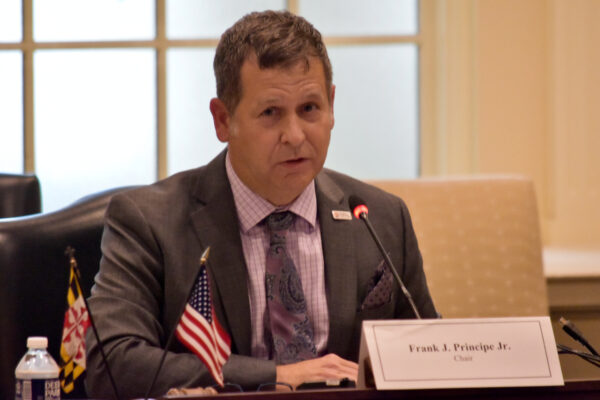Gas tax could become a relic as commission eyes new revenue streams

Maryland’s gas tax may one day become a relic if substitutes being considered by a new state transportation commission get traction.
Decreases in revenues flowing to the state’s Transportation Trust Fund could trigger dramatic changes in how the state pays for future road and transportation projects. Moving to a surcharge based on the number of miles driven is one change the state’s new Transportation Revenue and Infrastructure Needs Commission could suggest to the legislature over the next two years.
“The motor fuel tax in America, at best, is a system at risk,” said Ed Regan, a transportation consultant who spoke to the panel. “It served us well for 100 years. It’s an efficient proxy for direct user fee the more you drive the more you pay. But its days are numbered, both through increasing fuel efficiency, and most importantly, a dramatic shift toward fully electric vehicles.”

Frank Principe, chair of the Transportation Revenue and Infrastructure Needs Commission. Photo by Bryan P. Sears.
The 31-member commission led by Chair Frank Principe Jr. held its inaugural meeting Thursday.
Over the next 18-months, the panel will endeavor to reimagine how transportation projects are prioritized and paid for in Maryland.
The commission will “have to wrestle with some tough issues, to be quite frank,” said Maryland Transportation Secretary Paul Wiedefeld.
An interim report and recommendations to the legislature are due in January 2024. A final report and recommendations are due a year later.
Fuel sales in Maryland are on the decline. In 2020, during the start of the pandemic, total fuel sales declined 18% compared to 2019. Sales of gasoline fell by 20% during the same period.
Despite increases in the last two years, total fuel sales in 2022 was still more than 5% lower than in 2019. Gasoline sales remain more than 4% lower than 2019.
“So it seems like you reached peak fuel,” Regan told the commission. “I’ve been making this kind of presentation for a long time, and I’ve always had a forecast where we’re going to grow up to a certain point and then it will start to decline. The decline is here. We are headed down.”
More fuel-efficient vehicles and the growing adoption of electric and hybrid vehicles have driven that decrease to a degree. Maryland ranks 12 in the country in the number of electric vehicles per 1,000 people. Registration of those vehicles in Maryland is expected to increase in the coming years.
Earlier this year, Gov. Wes Moore (D) said all new car sales in Maryland by 2035 must be electric vehicles.
The trust fund is also hurt by reduced new vehicle titling taxes. That reduction is the result of people keeping their existing cars longer.
One idea on the table is a move away from the gas tax to a surcharge on miles driven.
Regan said technology that tracks where vehicles are and for how long could make such a surcharge more precise, particularly when it comes to interstate commuting. It could also open the door to variable rates based on congestion. A tax based on reporting an odometer reading would not be as precise, he said.
Three states — Oregon, Utah, and Virginia — impose some form of road usage charges. Hawaii is expected to follow suit. California is considering replacing its gas tax with a surcharge on miles driven.
“You can certainly see that things potentially are going to go that way,” said Senate Minority Leader Sen. Stephen S. Hershey Jr. (R-Upper Shore).
But lawmakers would have to resolve thorny issues including privacy rights and concerns about the government tracking and collecting data on the movements of drivers.
“You have to fix the privacy issue first,” he said. “And that might be a long way to go.”
Maryland, as with other states, is grappling with declining fuel tax revenues. The tax, now 47-cents per gallon, makes up nearly a quarter of the state’s Transportation Trust fund.
In 2013, Principe was chief of staff to then-Transportation Secretary Jim Smith. That year the legislature passed its first gas tax increase in two decades.
“Back then the primary focus was on raising the necessary funding,” Principe said. “Now this commission will look at even greater and larger picture that’s in front of us.”
A decade ago, the legislature passed the first increase in Maryland’s gas tax rate in 20 years. The law mandated automatic annual increases tied to the rate of inflation. The bill also dedicated the funding for transportation. The so-called lock box could only be tapped for other purposes in an extreme fiscal emergency. And then it would require the approval of a supermajority of the General Assembly.
Republicans and Moore dislike the automatic increase, albeit for different reasons.
Republicans want a vote each time the tax is raised, seeking to use the issue as a cudgel against Democrats.
Moore earlier this year irritated members of his own party by calling for an end to the automatic increases because it disproportionately affects working families.
Despite the increases, the number and cost of projects outstrips funding. This year, legislators estimated about $400 million in general funds would be used to subsidize transportation projects including the Purple Line.
Legislative budget analysts, in a recent report, note a 10-year shortfall of nearly $4 billion in the fund.
“Frankly, we need to invest at a level that’s greater than current resources provide,” Wiedefeld said.
Wiedefeld said his department faces a $100 million deficit in the coming fiscal year. The gap over the next six years is expected to top $2.1 billion.
None of that includes proposals to resurrect the east-west Red Line project in Baltimore or rebuilding the American Legion Bridge and easing congestion along the Capital Beltway or other large transportation projects.
“This commission offers us a reality check, an opportunity to look at our practices with a fresh perspective to deliver upon the governor’s vision to leave no one behind,” said Wiedefeld. “As we work together, we’ll see the investments needed to transform the state’s transportation system far outweigh our current resources. We’ll also see opportunities to modernize MDOT and the state’s transportation system.”




 Creative Commons Attribution
Creative Commons Attribution